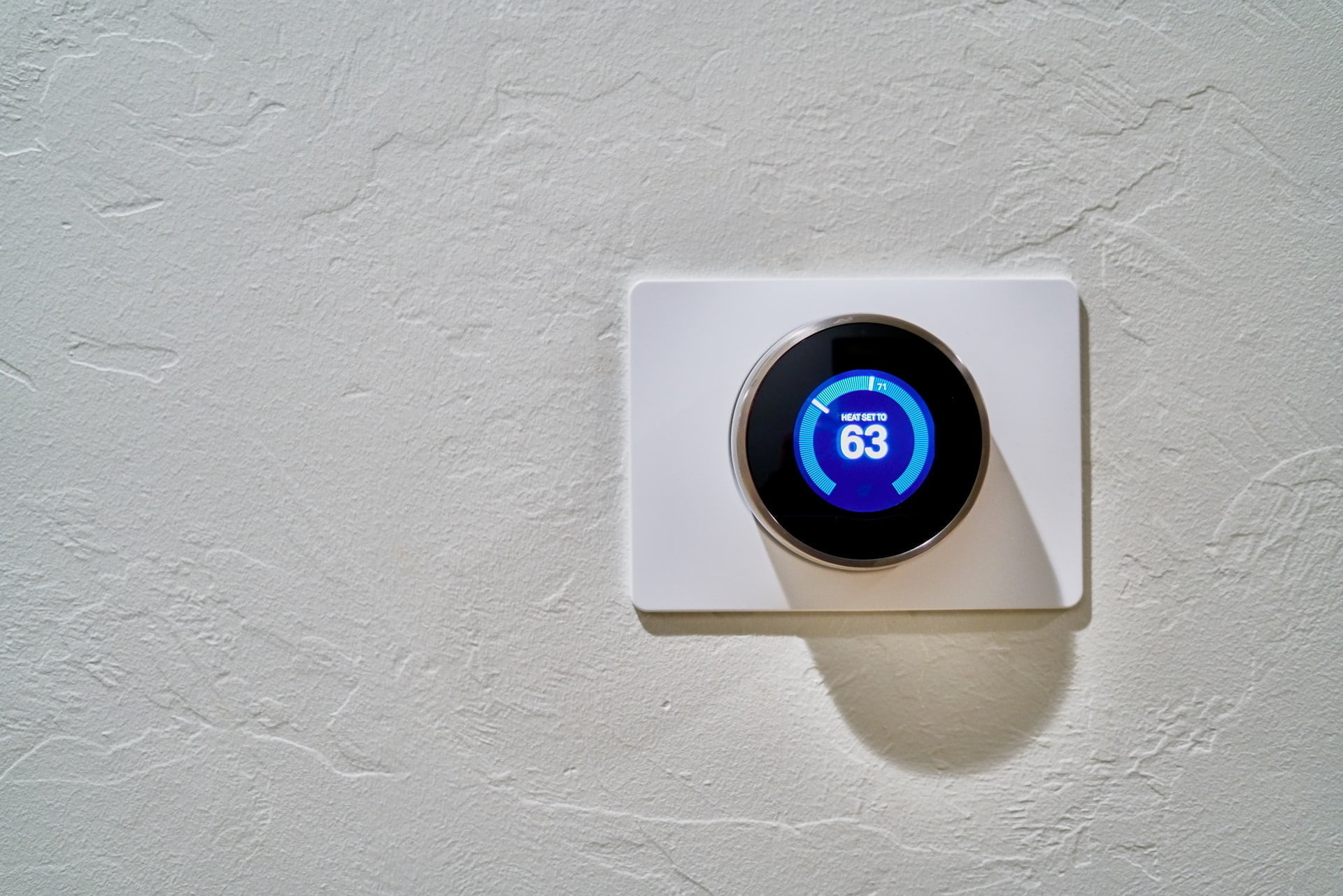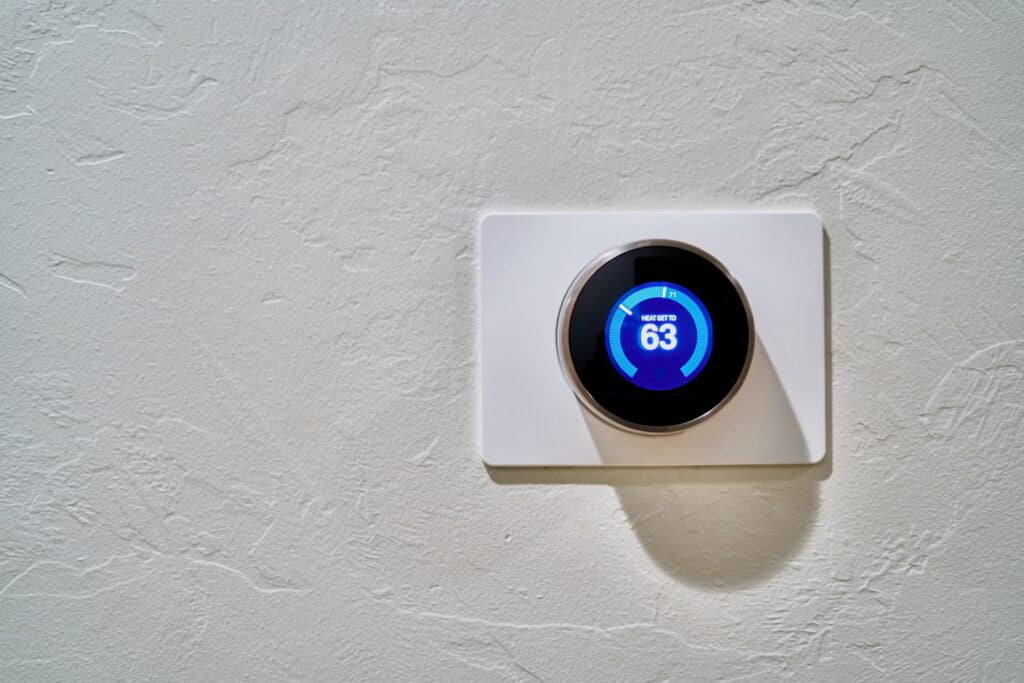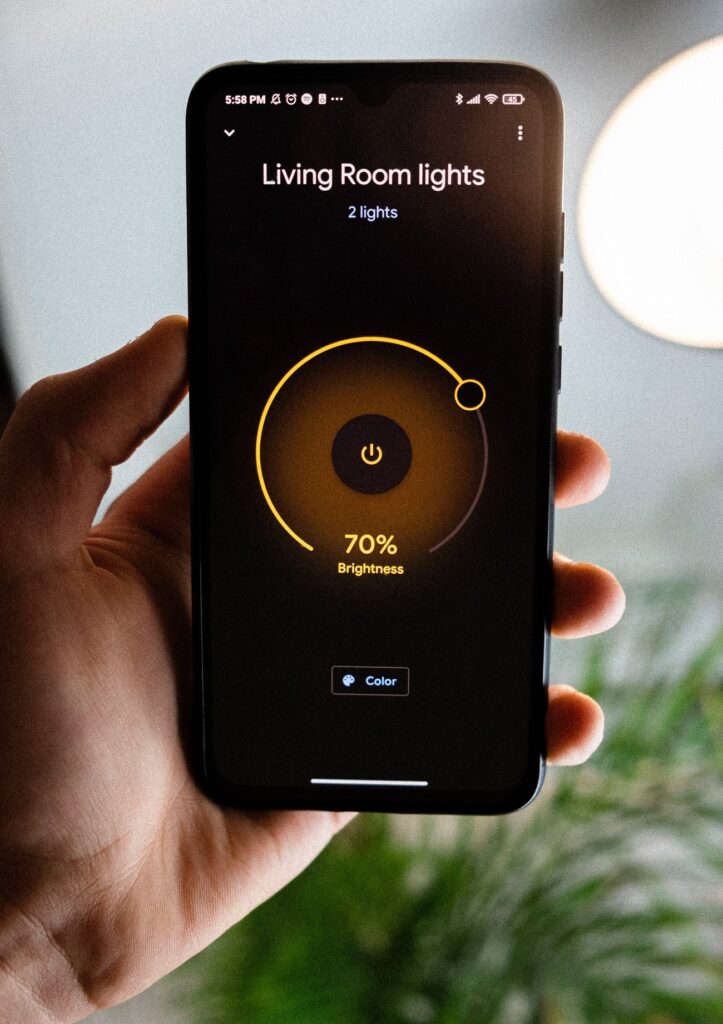
In today’s world, where the climate crisis is at the forefront and energy costs are rising, incorporating smart home technology into our lives has become increasingly important. From smart lighting systems to advanced climate control and renewable energy generation, these technologies can help us reduce our carbon footprint and lower our energy usage.
Temperature and Climate Control
By investing in a smart thermostat, you can easily make your home more eco-friendly. With a smart thermostat, you can synchronize and control your temperature settings directly from your mobile device. Forgot to adjust your thermostat before leaving for a vacation? Not a problem. You can make adjustments remotely, ensuring energy isn’t wasted unnecessarily. Advanced systems will even make automatic adjustments based on your preferences, providing energy-efficient climate control perfectly aligned with your routine.

The Benefits of Smart Lighting
While lighting may not be the first thing that comes to mind when considering sustainable living, it’s an area where we can significantly reduce our energy consumption. By switching to LED bulbs and smart lighting systems, we can make a substantial impact. LED bulbs use less energy than incandescent bulbs and have a longer lifespan, reducing both energy consumption and carbon dioxide emissions. Moreover, smart lighting systems allow for advanced user control, enabling you to program lights to turn on and off based on your daily schedule and receive alerts if lights are left on accidentally.

Keeping Track of Water Waste
Water consumption is another crucial aspect of sustainable living. By utilizing smart home technology, you can monitor and reduce your water usage. For example, smart shower heads provide advanced temperature and water pressure monitoring, allowing you to track your water consumption accurately. Additionally, smart irrigation systems can help you optimize water usage in your garden, ensuring your plants are watered only when needed based on weather conditions.
Smart Window Treatment Systems
Window treatments play a significant role in heat loss from your home. With smart window treatments, you can efficiently manage the temperature in your home throughout the year by minimizing heat loss during winter and reducing your reliance on air conditioning in summer. By controlling radiation and air leakage through your windows, smart window treatments contribute to lower energy bills and a more eco-friendly dwelling.
Invest in Smart Plugs
For those on a budget, smart plugs are an excellent option for making your home more eco-friendly. These affordable plugs monitor the energy usage of your devices, provide insights into energy costs, and prevent standby mode waste. You can program smart plugs to take advantage of off-peak savings or set timers to minimize energy usage, ultimately reducing your environmental impact.
Utilize Renewable Energy
Switching to a green energy supplier or investing in renewable energy sources like solar panels and heat pumps can significantly reduce your carbon footprint. Solar panels can power your entire home and provide surplus energy that can be redistributed to the national electricity grid. Heat pumps are an efficient alternative to conventional gas boilers. To maximize the benefits of renewable energy, smart home technology can help minimize waste and optimize energy usage.
Start Living Sustainably Today
To achieve net-zero goals, it’s essential to consider how we power our homes and manage our energy consumption. The Green Deal scheme in the UK offers various financing options for renewable energy investments, and smart home technology plays a crucial role in sustainable living. Installing smart plugs, upgrading to smart thermostats and smart lighting systems are just a few ways to reduce domestic carbon emissions and energy expenditure.
About The Author
Diarmuid Hennessy is the Operations Manager at HomeCheck, a property survey business helping homeowners all over Ireland.
FAQs
Q: How can smart home technology help reduce energy costs?
A: Smart home technology allows for better control of energy usage. By using smart devices like thermostats, lighting systems, and plugs, you can optimize energy consumption and reduce overall energy costs.
Q: Can smart home technology benefit the environment?
A: Yes, by using smart home technology, you can minimize your carbon footprint by reducing energy consumption and utilizing renewable energy sources more efficiently.
Q: Are smart home devices expensive to install?
A: While some smart home devices may require an initial investment, the long-term savings in energy costs can offset the upfront expenses. Additionally, government schemes and financing options are available to make these technologies more accessible.
Conclusion
Incorporating smart home technology into our lives is an effective way to reduce our carbon footprint and lower our energy usage. From temperature and climate control to smart lighting, water monitoring, window treatments, and renewable energy utilization, there are numerous options available to make our homes more eco-friendly. By embracing sustainable living practices enabled by smart home technology, we can contribute to a greener future.
For more informative articles, visit News Explorer Today!